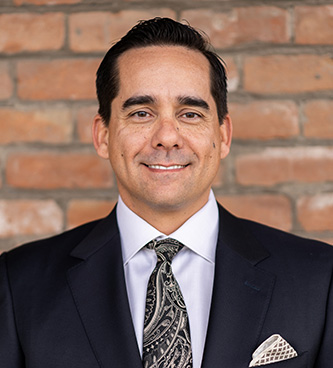At Torgenson Law, when we begin representing a new personal injury client, our first mission is to determine who will be liable for damages. Obviously, our first instinct is to identify the individual who actually caused the injury, as he or she is directly liable for our client’s injury. However, our investigation does not end there. Depending on the circumstances of the injury, the negligent individual’s employer may be vicariously liable for its employee’s negligence as well. In Arizona, this doctrine of liability is known as respondeat superior, which means “let the master answer.” In short, the company, corporation, or business that employs the individual will be vicariously liable for the individual’s wrongful acts when those acts occur within the course and scope of employment.
On its face, this liability doctrine seems relatively straightforward: If an employee negligently causes personal injuries while he or she is at work, the employer is liable. However, it is not as simple as that. Here are some questions one must ask to effectively assert a vicarious liability claim against an employer.
The key factor in determining whether an employment relationship existed is whether the employer has the right to control or direct the individual’s actions. Now, this does not require that there be an employment contract, nor must the employer compensate the employee for his services. Therefore, even interns and volunteers can be “employees” for the purposes of vicarious liability. With that said, it is important to show that the employee was under the control or direction of the employer when the injury occurred.
In Arizona, there are three factors considered to determine if an employee’s act occurred within the scope of his employment: (1) Whether the conduct was the type he was employed to perform; (2) whether the conduct occurred within the time and space limits authorized by the employer; and (3) whether the conduct was done in furtherance of the employer’s business.
Each of these factors can be established if there is evidence that the employer specifically required or instructed the employee to perform certain job responsibilities. One of the most common examples involving the issue of “course and scope” would be an employee who is driving a company car, truck, or tractor-trailer. For example, if an employee for a furniture store is instructed to deliver furniture in the company tractor-trailer to an address, runs a red light, and causes an injury, his employer, the furniture store, will be vicariously liable for those damages. On the other hand, if the same person decides to pick up groceries on his way back to the furniture store after delivering the furniture, these personal activities typically will not fall within the scope of employment.
Additionally, employers will be vicariously liable for acts that are incidental to that employment. To illustrate, if a bouncer at a bar negligently or intentionally causes harm to a patron while kicking them out of the bar, the bar itself will be vicariously liable. While if the bouncer committed similar wrongful acts on his day off at a different bar, his employer would likely not be vicariously liable.
To convince a jury that it is not liable, an employer may argue that it specifically forbade the activity that caused the injury. Perhaps, the pizza restaurant had a strict policy against running red lights, or the bar prohibited intentionally injuring patrons that were kicked out of the bar. However, Arizona law is clear that even an employee’s wrongful acts are in direct conflict with an employer’s policies, this does not take the employee outside the scope of employment. The employer can still be held vicariously liable.
As Phoenix injury attorneys, we know that it is your legal right to be compensated when you are injured due to the negligence of another. Under certain circumstances, an employer as opposed to or in addition to a negligent employee may be responsible for your personal injury compensations. These types of cases require the skills of an experienced legal team like Torgenson Law. If you or a loved one is injured, do not hesitate to call (602) 726-0747. We will not leave a stone unturned when it comes to your personal injury needs.
Looking for Torgenson Law updates on your social media feed? Give us a follow on:

John Torgenson is a highly experienced personal injury lawyer with over 20 years of practice in Arizona. He earned his Bachelor’s degree from the University of Utah and his Juris Doctor from Notre Dame. John has a proven track record of securing substantial verdicts and settlements, including an $8.25 million recovery for a gunshot injury victim. His expertise has earned him AVVO ratings and recognition as a Super Lawyer.
John is also a sought-after lecturer on personal injury law, sharing his extensive knowledge with peers and aspiring attorneys. Beyond his legal practice, John is an avid golfer and actively supports organizations like the Military Assistance Mission, Arizona School for the Arts, Page Balloon Regatta, University of Arizona Foundation, Junior Achievement of Arizona, and the Tim Huff Pro Bono Golf Classic.
Passionate about advocating for injury victims, John dedicates his career to battling insurance companies and corporate interests, ensuring that the rights of those who are hurt are vigorously defended.
